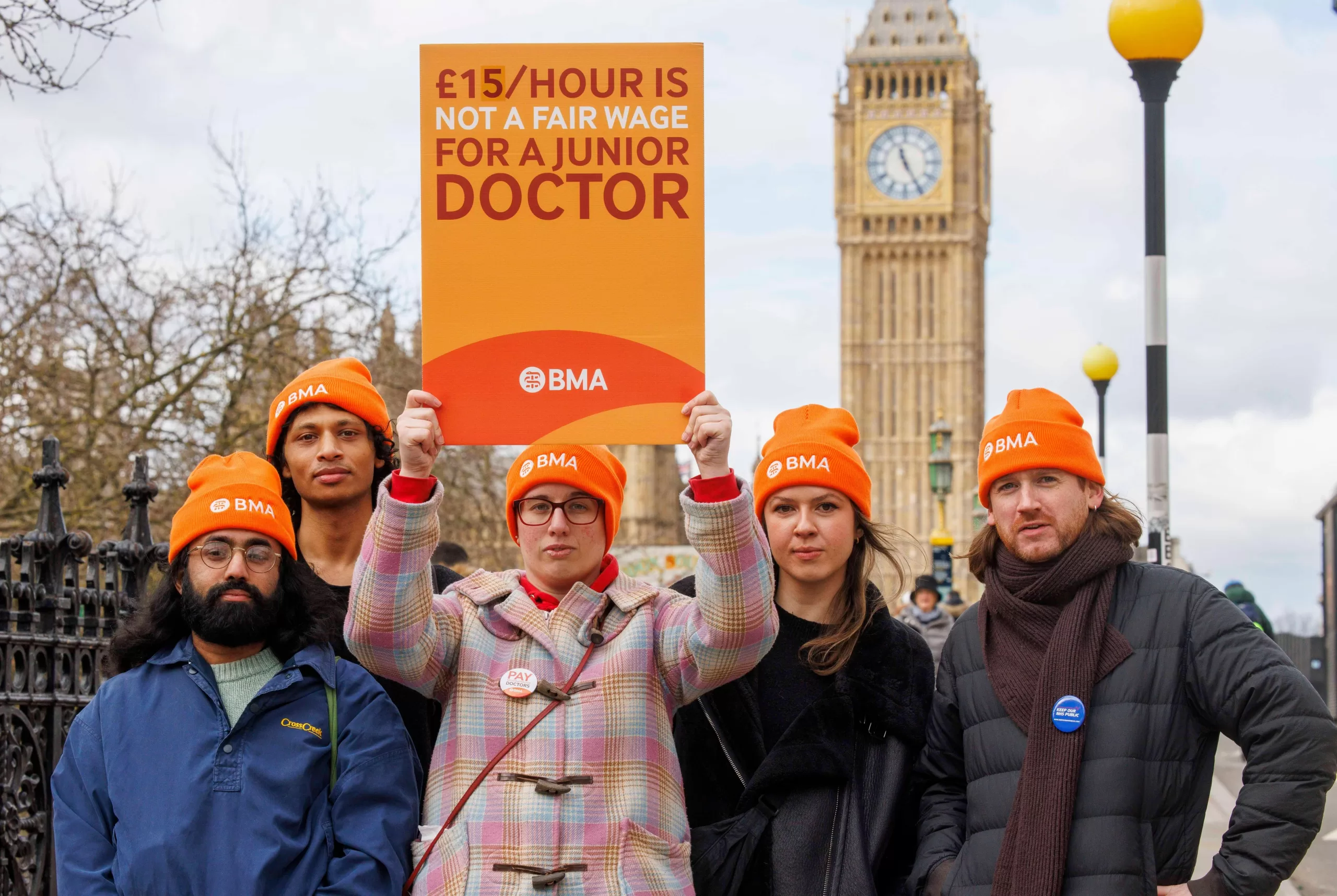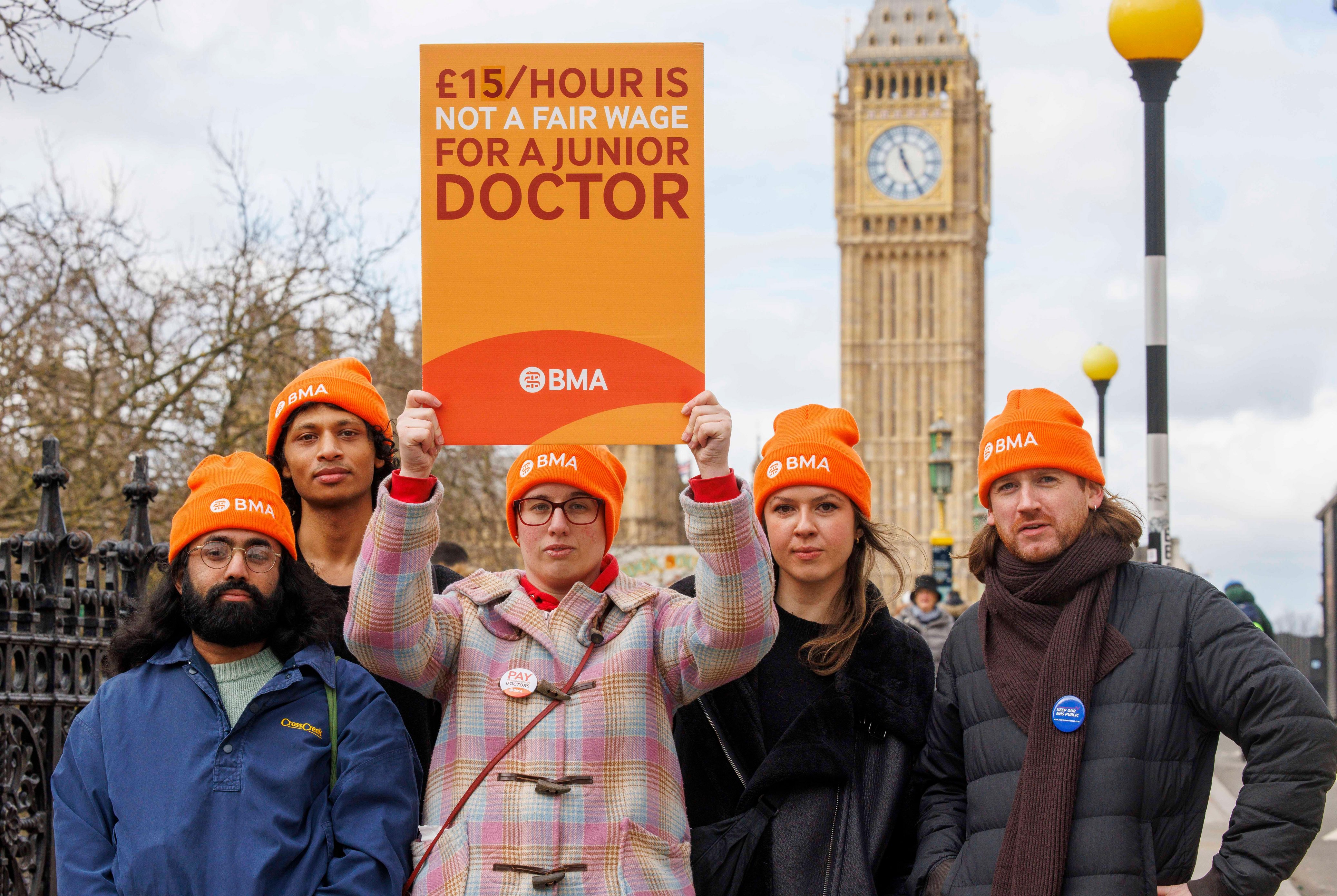NHS England officials reckon the impact has extended the backlog by 430,000.
It is currently at 7.6million after peaking at 7.8m in September.
Ministers have clashed with unions after blaming the strikes for patient misery and a failure to meet Rishi Sunak’s pledge to cut waiting lists last year.
More than 1.4m appointments have been cancelled or postponed by hospital strikes since they first began with nurses in December 2022.
The vast majority are due to junior doctors’ walkouts, which are still ongoing.
Ministers blame strikes for failure to bust backlog
NHS England chairman, Richard Meddings, said industrial action has “had a particular impact on our ambition to bring down the longest waits”.
Hospitals were told to treat all patients on a list for 18 months or more by April 2023 but have still not managed to, with 14,000 at 78 weeks or more in January.
Health service bean-counters calculated the 430,000 figure from treatments called off during strikes and the days immediately before and after, the Health Service Journal reported.
The biggest impact was felt in a four-day strike last April when an estimated 56,000 people were prevented from completing their treatment.
The impact per day has decreased in more recent strikes as hospitals have got better at coping.
Prime Minister Rishi Sunak admits he has failed on his 2023 pledge to slash NHS waits and said: “With industrial action it’s very hard to meet these targets.”
Strike leaders at the British Medical Association call it a “cheap shot” and said: “The truth is that successive Conservative governments have done little to bring the waiting list under control.”
Junior doctors in the BMA recently voted to extend strike action until at least September unless they get a bigger pay deal.

